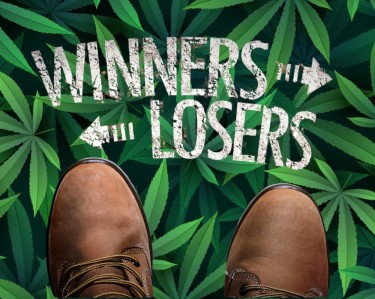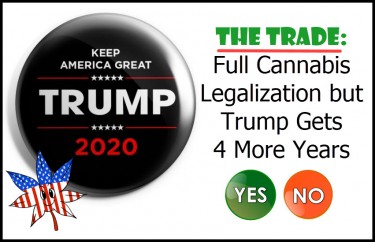Cannabis News
Pharmaceutical Companies Win Big with Schedule 3 Classification of Cannabis
Published
4 months agoon
By
admin

Pharma wins in Schedule III – De-scheduling is the only way for true Equity!
The Biden Administration has been loudly touting diversity, equity and inclusion as top priorities since taking office, particularly when it comes to cannabis policy reform. However, their recent proposal to reschedule cannabis from a Schedule I to a Schedule III controlled substance reveals that promoting true equity is far from their primary concern.
For decades, Joe Biden has been cozy with Big Pharma, accepting millions in campaign contributions from drug companies over his long political career. It’s no secret that the pharmaceutical industry vehemently opposes cannabis legalization, as legal weed represents a major threat to their profits from opiate painkillers and other drugs. Pharma much prefers that cannabis remain illegal, or barring that, placed into a restrictive category like Schedule III that they can control and corner the market on.
Rescheduling cannabis to Schedule III would allow the drug to be legally prescribed, but with strict controls and oversight from the FDA. This plays right into the hands of major drug companies, who have the resources to navigate the complicated federal approval process and bring cannabis-derived pharmaceuticals to market. Smaller entrepreneurs, especially minorities who have been disproportionately impacted by the War on Drugs, would be largely shut out from participating in the industry.
If the Biden administration truly cared about diversity, equity and inclusion in cannabis, they would push to completely deschedule the plant, rather than shifting it to Schedule III. Descheduling would open up opportunities for a much wider range of individuals and small businesses to enter the legal industry. It would begin to repair the harms of the drug war and create more equitable access.
But Biden has never been a real ally to cannabis reform or racial justice. His proposed rescheduling is a pharma market grab disguised as incremental progress. Allowing a corporate oligopoly to further enrich itself will do nothing to help the marginalized communities who have suffered the most under prohibition. Only full descheduling can pave the way for true equity in the cannabis space. The administration’s “diversity and inclusion” rhetoric around this issue rings completely hollow.
Rescheduling cannabis to Schedule III would place it under the strict purview of the FDA, subjecting the industry to onerous regulations and compliance burdens that disadvantage minority small business owners. The costs of operating a Schedule III business are prohibitively high for most entrepreneurs. Companies must navigate an arduous FDA approval process for each cannabis-derived product, which can take years and cost millions of dollars in research and legal fees.
According to a 2017 survey, only 4% of cannabis businesses are owned by African Americans, and less than 2% by Latinos. These numbers are unlikely to improve under a Schedule III system that favors deep-pocketed corporations. Existing minority-owned cannabis businesses, already facing capital access challenges, would struggle immensely to shoulder the regulatory costs of FDA compliance, likely driving many out of business entirely.
Businesses would have to implement robust quality control systems, conduct expensive clinical trials, and maintain meticulous production records to meet FDA standards. The agency’s Good Manufacturing Practices are notoriously difficult to comply with, requiring significant investments in specialized facilities and equipment. Companies would also face extensive labeling and marketing restrictions, with the FDA tightly controlling allowable claims and product information.
While Schedule III substances can be legally prescribed and sold, they are still considered illegal outside of FDA-approved channels. Cannabis would remain a federally illegal substance, with businesses still facing the threat of raids and asset forfeiture. This “Regulatory Prohibition” would likely be weaponized against minority operators, as the drug war has been for decades. Those without the means to fight regulators could find themselves criminalized under the new system.
The pharmaceutical industry, through lobbying and campaign contributions, would inevitably seek to shape the FDA’s cannabis regulations in their favor. This could lead to policies like dosage limits and bans on whole-plant products that benefit patented drugs while hindering small producers. Pharma’s influence would further tilt the playing field against minority owners.
For minority entrepreneurs, the costs of entry and compliance under Schedule III would be backbreaking. Without serious equity initiatives to provide resources and technical assistance, a Schedule III industry would be dominated by Big Pharma and exclude people of color, doing little to repair the injustices of the drug war.
As we debate the future of cannabis policy in America, we must first ask ourselves: why are we even considering legalization in the first place? The answer is clear – it is the will of the people. For over a decade, a steadily growing majority of U.S. citizens have believed that cannabis should be legal. A recent poll found that a staggering 91% of Americans support legalizing medical marijuana, and 7 out of 10 are in favor of recreational legalization as well. The public has spoken, and they have resoundingly rejected the failed policies of prohibition.
So why, then, are we wasting time debating incremental “rescheduling” measures like moving cannabis to Schedule III? The only rational discussion to be having at this point is how to deschedule marijuana entirely and implement full legalization nationwide. Anything less is a slap in the face to the supermajority of Americans who want the freedom to consume cannabis without fear of arrest or stigma.
Activists like RAW Josh on X (formerly Twitter) are absolutely right to be outraged at the suggestion of Schedule III as some kind of victory.
It is not a win for the cannabis community, who have fought for decades to end prohibition entirely. It is not a win for those who have had their lives ruined by the cruel excesses of the Drug War, disproportionately people of color. It is not a win for medical patients, who would still face significant federal restrictions on their medicine. And it is certainly not a win for entrepreneurs and small businesses, who would be steamrolled by the pharmaceutical industry under a Schedule III paradigm.
What Schedule III represents is the iron grip of corporate pharma influence on our political system. It is a calculated maneuver to co-opt the legalization movement and steer the industry into the waiting hands of a few powerful drug companies. Roughly half of the funding of the FDA comes from Pharmaceutical companies through a scheme called “User Fees”. Since Pharma loses roughly $10 billion annually in a region where Medical Cannabis is legal…what do you think happens to these “fees” that the FDA receive.
By maintaining strict federal control over cannabis, the government can pick and choose winners in the market, and rest assured those winners will not be mom-and-pop pot shops or minority-owned startups. They will be the multinational corporations with the lobbying power to write the regulations in their favor.
We cannot allow this to happen. We cannot allow the will of the people to be subverted by special interests yet again. The cannabis community must stand firm and demand nothing less than full descheduling and an end to federal prohibition once and for all. We must reject half-measures like Schedule III that are designed to fail us while enriching a corrupt pharmaceutical industry.
If that means we have to completely overhaul the DEA, or dismantle the incentive structures that allow corporations to buy off politicians, so be it. The war on drugs has been one of the most destructive and wasteful policy failures in American history, and it will not end until we take bold, uncompromising action. The people are ready for change, and we will continue to fight for it, against all odds and all opposition, until our work is finished. Descheduling is the path to justice, to equity, to individual liberty. We cannot settle for anything less.
When it comes to cannabis policy, the sticky bottom line is this: Schedule III is not what activists and advocates have been fighting for all these years. It is a far cry from the full legalization and normalization we seek. As citizens, it is imperative that we make our voices heard on this issue, not just in who we elect as president, but perhaps more importantly, in who we choose to represent us in Congress.
The unfortunate reality is that many of our current elected officials are political dinosaurs, beholden to special interests like Big Pharma who line their campaign coffers with cash. They are out of touch with the will of the people and more concerned with serving their corporate masters than doing what’s right. It is time we vote these compromised individuals out of office and replace them with representatives who will stand up to the pharmaceutical lobby and fight for true cannabis freedom.
What we demand is nothing less than complete descheduling of this miraculous plant. Because that’s what cannabis is at the end of the day – a plant. It is a seed that we can sow into the earth, a gift from nature that grows abundantly without human intervention. For centuries, humans have cultivated cannabis for food, fiber, medicine and spiritual purposes. Who are we to criminalize a plant that has served us so well?
The right to grow our own sustenance and healing herbs is fundamental to our autonomy as free people. Without that right, can we truly call ourselves free? Or are we merely slaves, dependent on the permission of corporations and governments to access the necessities of life? That is the question each of us must ask ourselves as we contemplate the future of cannabis in America.
In the end, the sticky bottom line is a matter of principle. Will we stand up for what we believe in, even in the face of powerful opposition? Will we fight for our sovereignty and self-determination, no matter how long it takes? Or will we compromise our values for the sake of political expediency and allow ourselves to be subjugated by those who seek to control us? The choice is ours to make, and the consequences will be ours to bear. Let us choose wisely, and let us never give up until the battle is won.
MORE ON SCHEDULE 3, READ ON…
You may like
-


Navigating Product Options at the Dispensary
-


How Long Do Delta 8 Gummies Take To Kick In?
-


I Ate Magic Mushrooms and Nothing Else for 10 Straight Days – Finding My Soul and Eternal Love
-
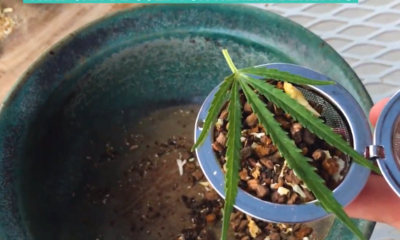

CBD Mushroom Tea – GanjaVacations Jamaica
-
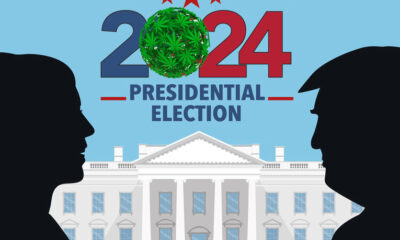

The US Suddenly Has Two Pro-Marijuana Legalization Candidates, But Only One is Believable 60 Days Before the Election
-
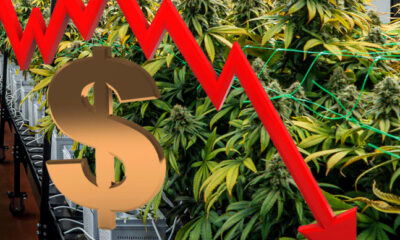

What State Just Dropped Below $80 an Ounce for Legal Cannabis? A. Florida B. Michigan C. California D. New York
Cannabis News
The US Suddenly Has Two Pro-Marijuana Legalization Candidates, But Only One is Believable 60 Days Before the Election
Published
19 hours agoon
September 7, 2024By
admin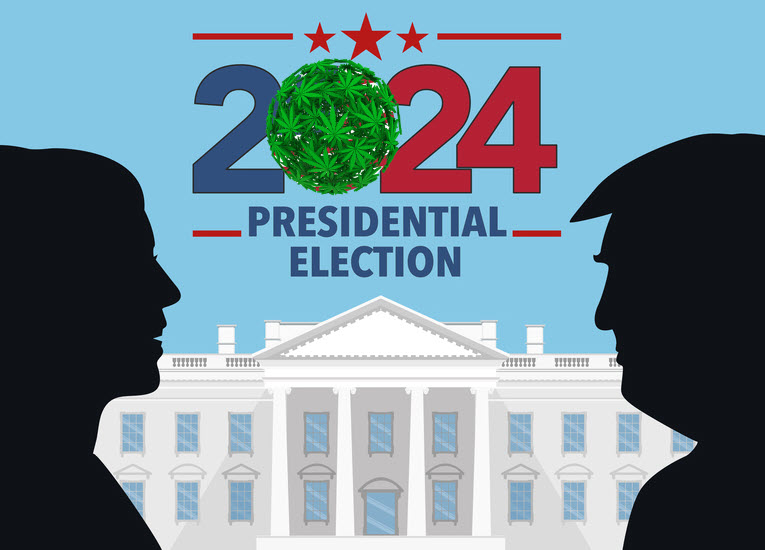
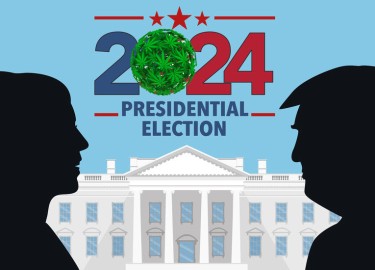
“Don’t Believe the Hype” – Public Enemy
In a surprising move, former President Donald Trump has publicly endorsed the legalization of cannabis, arguing that the criminalization of marijuana “ruins lives” and “wastes taxpayer dollars.” Speaking at a rally in Florida, Trump expressed confidence that voters will support a marijuana legalization initiative on the November ballot, stating, “I really believe it’s the right thing to do.”
Trump’s comments come at a time when public support for cannabis legalization is at an all-time high, with recent surveys indicating that approximately 78% of American adults favor legalization. The economic implications of this shift are significant, with the cannabis industry currently employing around 500,000 people and generating $29 billion in sales last year, a figure projected to rise to $37 billion by 2027.
The Harris camp immediately accussed the Trump camp of a “brazen flip-flop” on marijuana legalization just before the election in order ot try and lure swing voters. Based on Trump’s past presidency and his work with Attorney General Sessions during his first term, he is certainly no fan of marijuana, marijuana legalization, or was in any rush to support states that establisted legal, medical cannabis programs. As they say in life, “watch what someone does, not what they say 60 days before an election”, Trump had his chance as Commander-In-Chef and put the marijuana movement back 5 steps when he was in office.
This certainly smells fishy from the start based on his track record on drugs, alcohol, and marijuana legalization. Remember, he actually took steps in his Presidency to shut the marijuana movement down in America according to the New York Times.
Harris, on the other hand, claims to be for rescheduling cannabis and even legalizatio,n and a large clemency program. While she has been Vice-President for 4 years and legalization has not happened, her boss, President Biden, is no fan of drugs and has been on a founding memeber of the “War on Drugs” for over 40 years in office. So no, Harris has not “had her chance” the way Trump has had his chance as the actual President. As many know, the Vice-President’s roll in some instances is more for show and to take tours and visits the president does not have time or want to to do.
Harris has a “yet to be determined, yet things look good” on her marijuana legalization report card.
As MJBIZ covered in their artice on who would be better for marijuana reform going forward..
During a relatively quiet few years as vice president, Harris stumped for Biden’s generational advances in marijuana reform.
She was out front on the Biden administration’s pardons for former federal marijuana offenders as well as the October 2022 executive order that culminated in the Justice Department’s proposal this spring to move marijuana from Schedule 1 to Schedule 3 of the Controlled Substances Act.
“She’s actually gone further than (Biden),” said Bryan Barash, vice president of external affairs and deputy general counsel at Dutchie, an Oregon-based online cannabis sales platform.
“She’s said, ‘We can’t stop until there’s full legalization,’ which he has never said.”
In other words, Harris has the best record on marijuana reform of any major presidential candidate, including Biden.
Economic Implications of Legalization
The economic implications of cannabis legalization are substantial. The cannabis industry has rapidly evolved into a multi-billion dollar market, employing around 500,000 people and generating $29 billion in sales in the past year alone. Projections indicate that this figure could rise to $37 billion by 2027, highlighting the potential for job creation and economic growth in states that choose to legalize cannabis.
-
Job creation: Legalizing cannabis could create thousands of jobs across various sectors, significantly boosting the economy. In agriculture, the cultivation of cannabis will require a workforce for planting, harvesting, and processing. The retail sector will also expand, as dispensaries will need staff for sales and management roles. Additionally, manufacturing jobs will emerge to produce cannabis-infused products, such as edibles and oils. Overall, legalization can lead to substantial job creation in agriculture, retail, and manufacturing, benefiting local communities and economies.
-
Tax Revenue: Legalizing cannabis could create thousands of jobs across various sectors, providing a significant boost to the economy. In agriculture, the cultivation of cannabis will require workers for planting and harvesting. The retail sector will also expand, as dispensaries will need staff for sales and management roles. Additionally, manufacturing jobs will emerge to produce cannabis-infused products like edibles and oils. Overall, legalization can lead to substantial job creation, benefiting local communities and economies.
-
Economic Growth: A legal cannabis market has the potential to stimulate economic growth, especially in economically disadvantaged areas. By establishing regulated cannabis businesses, communities can attract investment and create new revenue streams, leading to job creation and increased local spending. This influx of economic activity can revitalize struggling neighborhoods, providing opportunities for entrepreneurship and supporting ancillary businesses, such as suppliers and service providers. Additionally, the tax revenue generated from cannabis sales can be reinvested into public services, infrastructure, and community development projects, further enhancing the overall economic landscape. Ultimately, legalizing cannabis can serve as a catalyst for sustainable growth and revitalization in areas that need it most
Health Benefits and Opioid Reduction
Trump also emphasized the health advantages of legal cannabis, particularly its potential role in managing chronic pain and reducing reliance on opioids. This point is especially relevant given the ongoing opioid epidemic, which has claimed hundreds of thousands of lives in recent years.
-
Mental Health Benefits: Emerging research suggests that cannabis may also have therapeutic benefits for mental health conditions, such as anxiety and depression, further supporting its legalization.
Disproportionate Impact on Communities of Color
Trump’s advocacy for cannabis legalization also reflects a growing awareness of the disproportionate impact of cannabis criminalization on communities of color. Over 40,000 individuals remain incarcerated for non-violent cannabis offenses, with Black and Hispanic individuals being significantly more likely to face prosecution and harsher sentences for cannabis-related crimes.
-
Social Equity Programs: Many states that have legalized cannabis have implemented social equity programs aimed at helping communities disproportionately affected by the War on Drugs, providing opportunities for entrepreneurship and economic participation in the legal cannabis market.
-
Expungement of Records: Legalization efforts often include provisions for expunging the records of individuals previously convicted of non-violent cannabis offenses, allowing them to reintegrate into society without the stigma of a criminal record.
Shifting Political Landscape
Trump’s endorsement of cannabis legalization represents a significant shift in the political discourse surrounding the issue. Historically, the Republican Party has been more resistant to legalization efforts, with many conservatives expressing concerns about the potential for increased drug use and public safety risks. However, as public opinion has shifted and the economic and social benefits of legalization have become more apparent, some Republican leaders have begun to reconsider their stance.
-
Influence of State-Level Legalization: The success of state-level legalization efforts has provided a blueprint for national policy changes, demonstrating that cannabis can be regulated effectively without compromising public safety.
Potential Impact on the 2024 Election
Trump’s support for cannabis legalization could have significant implications for the 2024 presidential election, particularly if he decides to run again. By aligning himself with a popular issue that enjoys broad bipartisan support, Trump may be able to attract a wider range of voters, including younger and more progressive-leaning individuals who have traditionally been skeptical of Republican candidates.
-
Engaging Younger Voters: Younger voters, who are more likely to support cannabis legalization, could be crucial for Trump’s campaign, potentially swaying their votes in his favor.
-
Broadening the Republican Base: By embracing cannabis legalization, Trump may be able to broaden the Republican base and attract independent voters who prioritize social justice and economic reform.
Conclusion
Donald Trump’s endorsement of cannabis legalization marks a significant milestone in the ongoing effort to end the criminalization of marijuana in the United States. By acknowledging the negative impact of prohibition on individuals, communities, and taxpayers, and highlighting the potential benefits of legalization, Trump is adding his voice to a growing chorus of advocates who believe that it is time for a new approach to cannabis policy. As the 2024 election cycle approaches, it will be fascinating to observe how Trump’s stance on this issue shapes the political landscape and influences the debate over the future of cannabis in America. With public support at an all-time high and the economic and social benefits becoming increasingly clear, the momentum for cannabis legalization appears poised to continue growing in the years to come.
TRUMP FOR 4 MORE YEARS BUT YOU GET CANNABIS LEGALIZATION, YES OR NO? SEE BELOW!
Cannabis News
What State Just Dropped Below $80 an Ounce for Legal Cannabis? A. Florida B. Michigan C. California D. New York
Published
1 day agoon
September 6, 2024By
admin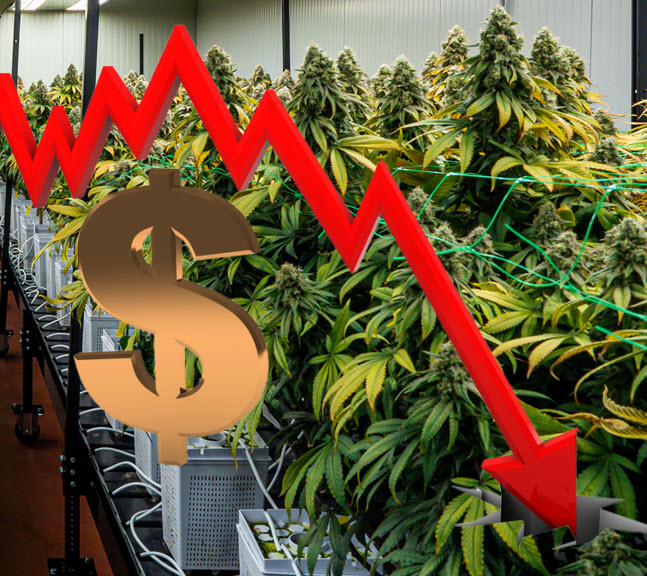
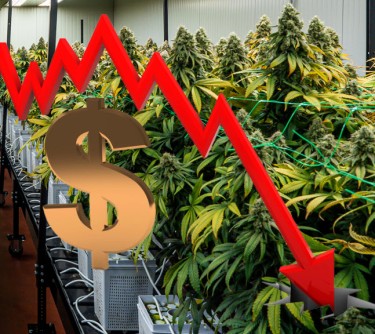
In a significant development for Michigan’s cannabis industry, retail prices have fallen below $80 per ounce as of September 4, 2024. This historic milestone, reflecting a nearly 14.5% decline from the previous year, signals a major shift in market dynamics.
The price drop is driven by increased competition among licensed dispensaries, a growing supply of cannabis products, and the maturation of the market since the legalization of recreational use in 2018. More dispensaries and cultivation facilities have led to competitive pricing and greater product availability, making cannabis more affordable for consumers and potentially boosting legal sales.
As a leader in the Midwest’s cannabis landscape, Michigan’s regulatory framework supports both medical and recreational markets, generating significant tax revenue and job opportunities. As the industry evolves, stakeholders must navigate challenges and capitalize on emerging opportunities.
Factors Behind the Price Drop
The surge in the number of licensed dispensaries in Michigan since the legalization of recreational cannabis in 2018, coupled with the expansion of cultivation facilities, has led to a significant increase in the supply and availability of cannabis products. With more dispensaries offering a wider variety of choices for consumers, the market has become increasingly competitive, with retailers employing pricing strategies to attract customers. This growth in the number of dispensaries and cultivation facilities has enabled dispensaries to offer lower prices to consumers, making cannabis more accessible and affordable.
As the cannabis market matures, both producers and retailers have optimized their operations, leading to reduced costs that are often passed on to consumers. Enhanced cultivation techniques and economies of scale have played a crucial role in lowering production expenses, allowing businesses to improve efficiency and increase output. This combination of operational optimization and cost reduction not only benefits producers and retailers but also makes cannabis products more affordable and accessible for consumers, fostering a healthier and more competitive market environment.
The market has become oversaturated with cannabis products, particularly following significant outdoor harvests. This oversupply has led to a decrease in prices as producers and retailers compete to sell excess inventory.
Michigan currently has no statewide cap on the number of cannabis business licenses, resulting in explosive growth in both supply and demand. This unrestricted licensing has intensified competition among businesses, driving prices downward as they vie for market share.
Implications for Consumers and the Industry
The recent drop in cannabis prices has made the product more affordable for a broader segment of the population, enabling consumers to access quality cannabis without financial strain. This increased affordability not only allows more individuals to enjoy legal cannabis but also promotes responsible use and consumption, as people are more likely to make informed choices when quality products are within reach. By removing financial barriers, the industry is fostering a healthier relationship with cannabis among consumers, contributing to a more informed and responsible market.
The potential boost in sales volume is another significant implication of the lower cannabis prices in Michigan. As the cost of cannabis becomes more affordable, more consumers are likely to enter the market, leading to an increase in overall sales. Dispensaries may experience higher foot traffic as a result of this increased interest in cannabis products, directly benefiting from the lower prices. This influx of new consumers and higher sales volume could further solidify the industry’s growth and sustainability in the state, as businesses capitalize on the greater demand for their products.
The competitive pricing of legal cannabis products in Michigan has the potential to curb illegal sales by making regulated options more attractive to consumers. As the cost of legal cannabis becomes more affordable and accessible, individuals may be more inclined to purchase from licensed dispensaries rather than the black market. This shift towards regulated products not only supports the legal industry but also enhances public safety and quality assurance. By choosing legal cannabis, consumers can be confident in the safety, purity, and potency of the products they purchase, reducing the risks associated with unregulated, illicit markets. As more consumers opt for legal cannabis due to the competitive pricing, the state can expect to see a decline in illegal sales and an improvement in overall public health and safety.
Michigan’s Cannabis Landscape
Since the legalization of recreational cannabis in Michigan, the state has become a pioneer in cannabis reform within the Midwest. With a comprehensive regulatory framework in place, Michigan supports both medical and recreational markets, fostering a thriving industry that has generated significant tax revenue and job opportunities.
The cannabis industry in Michigan has significantly contributed millions in tax revenue, which is allocated to vital areas such as education, infrastructure, and public health initiatives. Additionally, the industry’s growth has led to job creation across cultivation, distribution, and retail sectors, providing numerous employment opportunities for residents. This dual impact not only supports the state’s economy but also enhances community well-being through improved public services and increased job availability.-
As cannabis prices continue to decrease in Michigan, making the products more accessible to a wider consumer base, there is a growing need for comprehensive consumer education. Dispensaries are increasingly taking on the responsibility of educating their customers on responsible use, product selection, and the effects of various cannabis strains. By offering workshops and informational resources, dispensaries aim to help consumers make informed choices and develop a deeper understanding of the products they consume. This proactive approach to consumer education not only promotes responsible use but also fosters a more informed and engaged cannabis community in the state.
Conclusion
The decline in cannabis prices to below $80 per ounce is a significant development for Michigan, highlighting the success of Its regulatory framework and the positive impact on consumers. As the market matures, stakeholders will need to remain vigilant in addressing challenges while capitalizing on the opportunities presented by this dynamic industry.
MICHIGAN CANNABIS PRICES PLUMMET, READ ON…
MICHIGAN CANNABIS FLOWER PRICES DROP BELOW $122, IS $80 NEXT?
Cannabis News
Loper Comes for the DEA. Will it Matter, Though?
Published
1 day agoon
September 6, 2024By
admin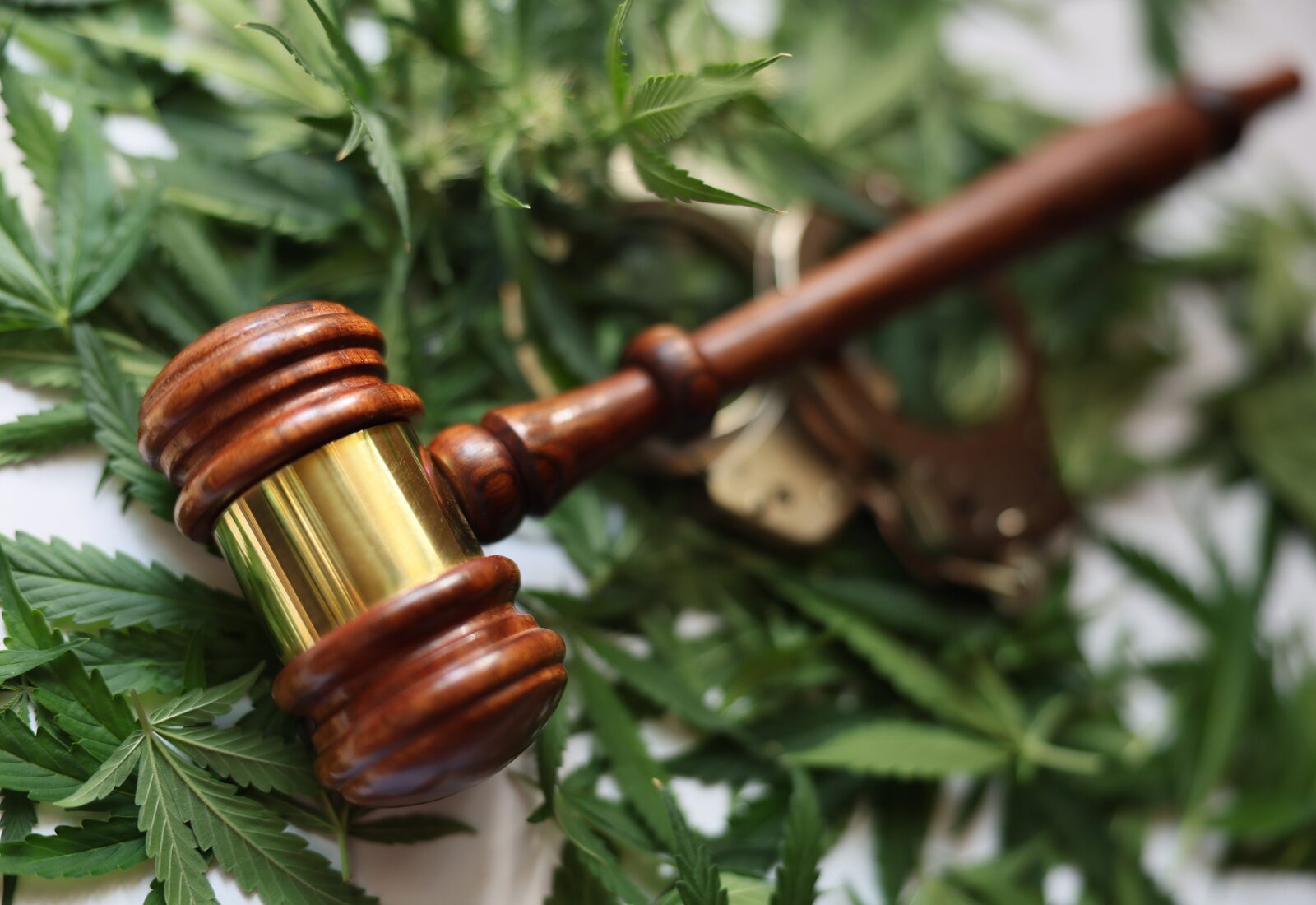
Earlier this week, the federal Fourth Circuit Court of Appeals, in a case entitled Anderson v. Diamondback Investment Group, LLC, handed the DEA a big loss when it comes to hemp – at least for now. In Anderson, the court held that DEA’s interpretation that a host of hemp-derived products were illegal was essentially wrong. Today I want to talk about why Anderson is – and isn’t really – important.
Anderson, as I wrote more than a month ago, was based in relevant part on Loper Bright Enterprises v. Raimondo, a 2024 US Supreme Court decision. Here’s what I said then:
Loper ended what’s often referred to as “Chevron deference.” To vastly oversimplify, Chevron deference required federal courts to defer to reasonable agency interpretations of ambiguous statutes, even if courts did not agree with those interpretations. With Chevron dead, courts will not be required to defer to agencies and courts can decide, on their own, whether an agency’s interpretation was within its statutory authority.
Ever since Loper was decided, there have been a million different theories on how it could affect the cannabis and hemp industries. [For the record, I agree with folks like Shane Pennington who argue that Loper will not affect rescheduling.]
When it comes to hemp though, Loper may in theory have more of an impact, as my colleague, Vince Sliwoski, argued prior to Loper‘s publication. That’s because the DEA routinely issues what amount to opinion letters as to whether this or that cannabinoid is or is not a schedule I narcotic. Under Loper, if there were any statutory ambiguity, the DEA’s interpretation would no longer be given deference. That’s not to say that the DEA might not prevail, but it means the deck would be less stacked in DEA’s favor.
And that is essentially what happened in Anderson. Without getting into the factual weeds of the case, an employee had been terminated after drug tests allegedly showed marijuana use. She sued, in part claiming that she used legal hemp-derived products. The court ultimately held that she had failed to provide they were legal because she did not introduce sufficient evidence that the hemp products had less than 0.3% delta-9 THC.
However, for purposes of this post, the important part of the Anderson decision was its discussion of the 2018 Farm Bill and DEA’s interpretations of the legality of various cannabinoids under that law. One specific cannabinoid that the court analyzed was THC-O, which does not occur naturally but is created from hemp derivatives.
For years, there has been a heated debate as to whether hemp-derived products like delta-8 THC are considered “hemp” under the 2018 Farm Bill. The debate centers around whether these products are “synthetic” because they are derived from other cannabinoids. This is important because DEA considers synthetic cannabinoids to be controlled substances.
A few years ago, in AK Futures LLC v. Boyd Street Distro, LLC, the Ninth Circuit Court of Appeals addressed the issue (albeit in a much different context), and held that delta-8 THC products derived from hemp with less than 0.3% THC were legal under the 2018 Farm Bill.
Importantly, Anderson found AK Futures persuasive, holding:
“we think the Ninth Circuit’s interpretation of the 2018 Farm Act is the better of the two. And we’re free to make that determination ourselves, despite a contrary interpretation from the DEA, because we agree with the Ninth Circuit that [the 2018 Farm Bill’s definition of hemp] is unambiguous . . ., and because even if it were ambiguous, we needn’t defer to the agency’s interpretation [as a result of the Loper decision].”
Crucially, Anderson held that “rather than originating from organic matter—like the hemp-derived cannabinoids at issue—, synthetic cannabinoids are just that: compounds manufactured entirely out of synthetic materials.”
To summarize all of this, according to the Fourth Circuit, if a product is derived from hemp and does not contain more than 0.3% THC, it is legal. This includes things pulled directly from the plant, or things like delta-8 THC which may take other processes to produce. But, any cannabinoid derived purely from synthetic materials would not be considered “hemp” under the 2018 Farm Bill.
All of that said, Anderson probably won’t matter much. As I noted in in July:
[A]ll of [the discussion about Loper] is almost certainly academic – at least if Congress passes the Farm Bill with proposed amendments that would ban intoxicating hemp products. If that happens, the DEA won’t need to opine on the legality of many (if not most or all) intoxicating hemp products. The law would have already changed to prohibit them expressly.
But what happens if the upcoming Farm Bill doesn’t contain bans on intoxicating hemp products? Things will almost certainly not end there. The FDA, which has been hostile to many hemp products since the day the 2018 Farm Bill was passed, could simply claim products are adulterated or misbranded and seek to pull them from the market. It does this with kratom, which is an unscheduled plant, and there’s no reason why it could not do it here (subject again to FDA having to prove its case in a post-Loper court challenge).
And, as I noted, federal law isn’t the only thing that matters:
Things are also not looking great for intoxicating hemp products at the state and local levels. The State of Virginia, for example, just levied nearly $11 million in fines against more than 300 retailers allegedly selling state-prohibited intoxicating hemp products. Out west, the Colorado attorney general sued a business in June for allegedly selling super-high THC products marketed as federally legal hemp.
We also assume that there is a lot of local enforcement actions that go under the radar – things like state or local public health officials pulling products from shelves or warning stores. That can be harder to track if for no other reason than it doesn’t often make the news. We also assume that a lot of the reports concerning enforcement against alleged illegal marijuana stores or operators, including in places like New York, may miss the legal nuances between intoxicating hemp products and illegal cannabis products.
In sum, the intoxicating cannabinoid industry just won the battle with DEA, but it’s probably not going to win the war.

Navigating Product Options at the Dispensary

How Long Do Delta 8 Gummies Take To Kick In?

I Ate Magic Mushrooms and Nothing Else for 10 Straight Days – Finding My Soul and Eternal Love

CBD Mushroom Tea – GanjaVacations Jamaica

The US Suddenly Has Two Pro-Marijuana Legalization Candidates, But Only One is Believable 60 Days Before the Election

What State Just Dropped Below $80 an Ounce for Legal Cannabis? A. Florida B. Michigan C. California D. New York

The Best Refreshing Cocktails

Key Tips For Consuming Marijuana At The Local Fair

Loper Comes for the DEA. Will it Matter, Though?

essential elements create suitable germination environment

Distressed Cannabis Business Takeaways – Canna Law Blog™

United States: Alex Malyshev And Melinda Fellner Discuss The Intersection Of Tax And Cannabis In New Video Series – Part VI: Licensing (Video)

What you Need to Know

Drug Testing for Marijuana – The Joint Blog

Cannabis, alcohol firm SNDL loses CA$372.4 million in 2022

NCIA Write About Their Equity Scholarship Program

It has been a wild news week – here’s how CBD and weed can help you relax

A new April 20 cannabis contest includes a $40,000 purse

City Of Oakland Issues RFP For Employee Training Programs

UArizona launches online cannabis compliance online course
Trending
-

 Cannabis News1 year ago
Cannabis News1 year agoDistressed Cannabis Business Takeaways – Canna Law Blog™
-

 One-Hit Wonders1 year ago
One-Hit Wonders1 year agoUnited States: Alex Malyshev And Melinda Fellner Discuss The Intersection Of Tax And Cannabis In New Video Series – Part VI: Licensing (Video)
-

 Cannabis 1012 years ago
Cannabis 1012 years agoWhat you Need to Know
-

 drug testing9 months ago
drug testing9 months agoDrug Testing for Marijuana – The Joint Blog
-

 Marijuana Business Daily1 year ago
Marijuana Business Daily1 year agoCannabis, alcohol firm SNDL loses CA$372.4 million in 2022
-

 Education2 years ago
Education2 years agoNCIA Write About Their Equity Scholarship Program
-

 Cannabis1 year ago
Cannabis1 year agoIt has been a wild news week – here’s how CBD and weed can help you relax
-

 California1 year ago
California1 year agoA new April 20 cannabis contest includes a $40,000 purse



